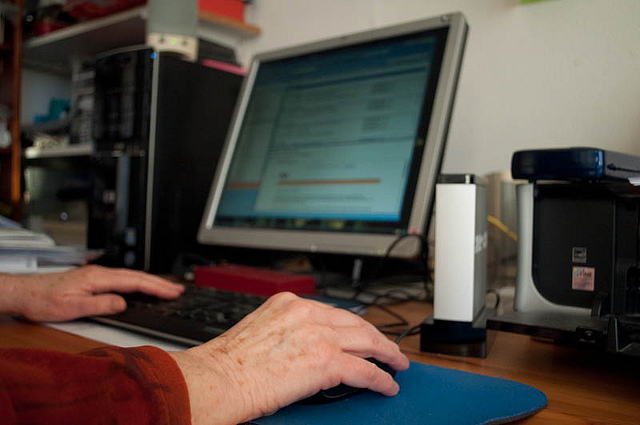News
Slow internet service, LGUs hamper growth of impact sourcing industry – DICT chief

According to reports, internet service in the country is improving, but continues to be one of the slowest and most expensive in the world. (Photo: Wies van Erp/ Flickr)
DAVAO CITY–The slow broadband service and the local government units’ (LGUs) bureaucratic process in granting permits to telecommunication firms are obstructing the government’s goal of improving telecommunications in rural areas and the further growth of impact sourcing industry in the country.
According to reports, internet service in the country is improving, but continues to be one of the slowest and most expensive in the world. In the 2016 fourth quarter report of Akamai, the Philippines has the slowest average fixed broadband speed in Asia Pacific; the second slowest 3G/4G overall speed in the world according to the OpenSignal February 2017; and the third most unaffordable internet service in Asia.
Department of Information and Communication Technology (DICT) Secretary Rodolfo Salalima admitted the country’s broadband and internet service are still slow, which impacts the impact sourcing industry and the generation of online job opportunities.
The impact sourcing industry, according to the Contact Center Association of the Philippines (CCAP), is a big potential for development and economic growth. In the last 15 years, the impact sourcing industry was able to create at least 300,00 jobs outside Metro Manila and is seen to grow 11 percent in the provinces and seven percent in Metro Manila.
The DICT official specifically pointed out the role of the LGUs in improving communications in the country, especially in the rural areas. Salalima also stressed that bureaucratic process in the LGUs impedes development in communication.
He told reporters during a press conference on Wednesday afternoon that telecommunication firms are complaining about the many requirements of LGUs in the putting of additional cell sites and the approval time of permits.
According to Salalima, some LGUs take eight months to approve cell site projects.
Salalima recognized the fact that Filipinos are mobile users, but said that mobile networks lack speed because the country lacks cell sites. For a combined Smart and Globe requirement for faster internet service, Salalima said there is a need to put 8,000 cell sites in the country.
He stressed this is a drawback in the mobile network. Vietnam he said has 70,000 cell sites and Malaysia has 85,000 sites.
“Cell sites matter a lot in terms of speed of internet,” Salalima told reporters, adding that people should understand that cell sites are needed to improve connection or address slow and inefficient internet connection.
On LGU issues, Salalima said he has already drafted an Executive Order for the signature of President Rodrigo Duterte for LGUs to shorten the processing of permit to seven days from the start of the application.
If there is no action, automatically the application is approved, Salalima said.
Samuel Matunog, president of the Information and Communication Technology (ICT) in Davao, said slow broadband service remains a challenge to the industry, especially in the growing opportunity of online work.
In 2014 alone, Matunog said online jobs raked in PHP124 million in Davao. There is an estimated 14,000 online workers in Davao and this could double in the next five years if there is improvement in telecommunication service, he said.
Salalima and Matunog were among the participants in the ongoing two-day Ist Philippine Impact Sourcing Conference held at the Royal Mandaya Hotel here.





















